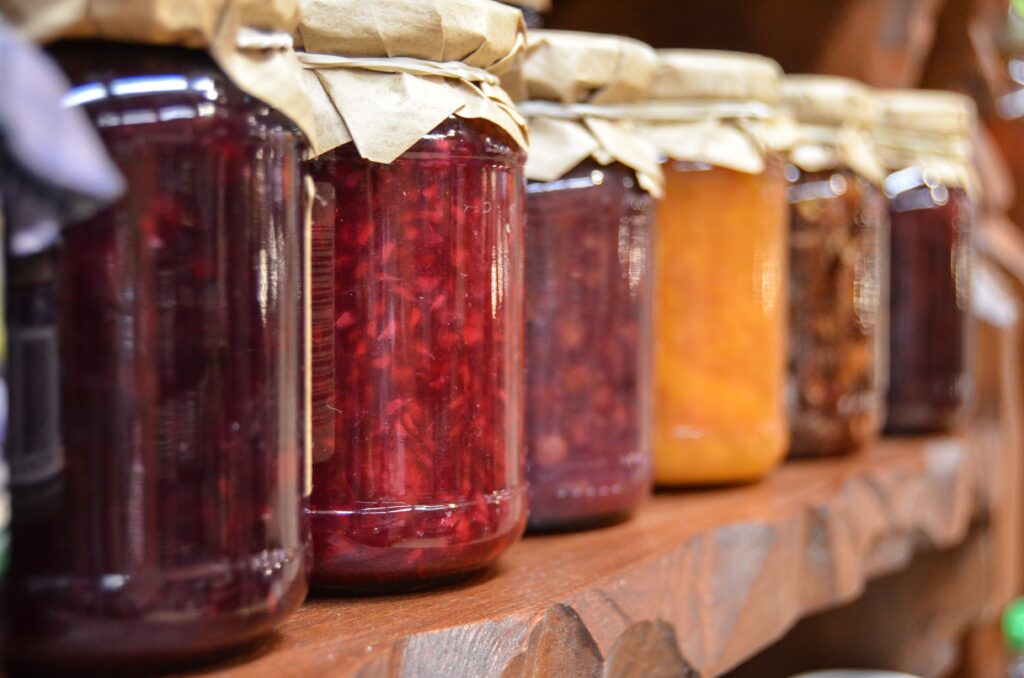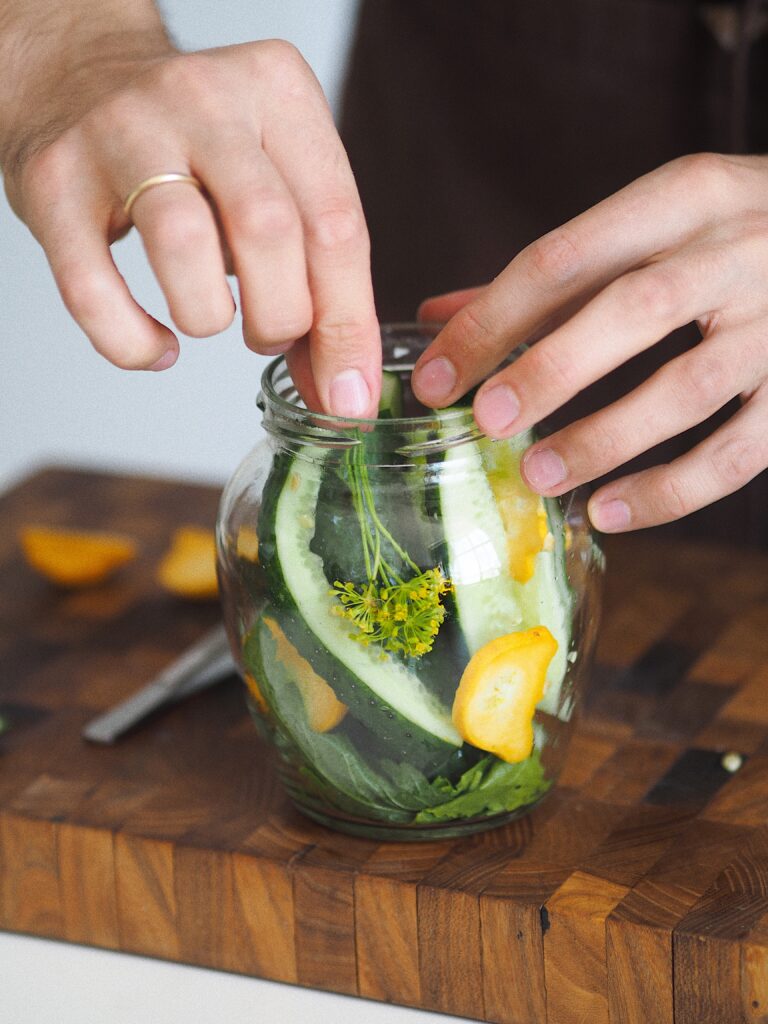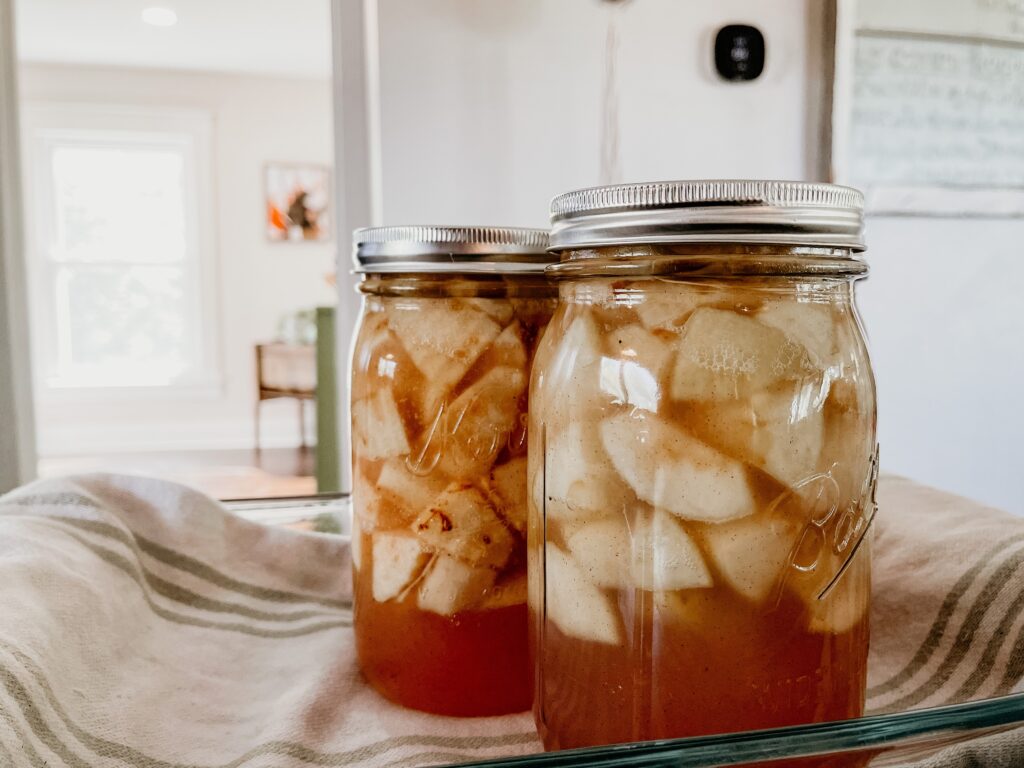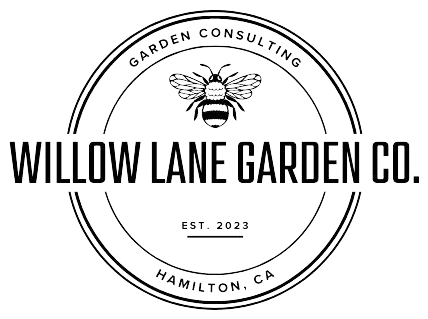Preserving Your Summer Harvest!
Is all that harvest for nothing?
Now that we’ve reaped the bountiful harvest of spring and summer, what can we do with the surplus we know we won’t consume in time? If you’re anything like us, your garden may be overflowing with tomatoes, basil, and a plethora of other herbs that won’t be used before winter’s chill sets in. You might ponder, “Is all this effort going to waste?” or “Why did I grow so much without a plan?” Fear not, there are numerous ways to safeguard your precious produce!
Surprisingly, we’ve already preserved over 50 tomatoes by freezing them and transformed another 100+ into sauces and salsa, ready to be stashed in the freezer. We’ve also expertly dried batches of basil and rosemary, rendering them into aromatic dried herbs. Whether you opt for freezing, canning, drying or pickling, these methods significantly extend the shelf life of your harvest, allowing you to enjoy them in the heart of winter without relying on grocery store produce (phew!).
While some may opt for fancy contraptions like dehydrators (which are on our wish list!), you’ll find that you don’t require much to preserve your bounty. Basic mason jars and freezer bags will take you a long way!

Let’s talk about strategy to preserve that harvest!
As discussed in the previous section, there are several effective methods to preserve your precious harvest. Below, we’ll provide a concise overview of these different strategies, particularly suited for those who are just starting out!
Freezing: This is perhaps the most straightforward approach to storing your crops. Most vegetables freeze well, with the exception of potatoes and cabbage, which tend to become soggy. To maintain their flavour and colour, it’s crucial to blanch these veggies. This involves boiling the vegetables for a few minutes and then rapidly cooling them in ice-cold water to halt enzyme activity. Once blanched, you can store them in freezer bags or plastic containers.
Canning: Canning is a more involved technique that must be followed meticulously. Incorrect canning can lead to the growth of dangerous bacteria, rendering your preserved vegetables useless. The boiling bath method used in canning is highly effective for preserving a wide range of vegetables and fruits. Low-acid vegetables, however, require pressure canning. Properly canned produce can be stored and enjoyed months later.
Drying: This method can be as straightforward as leaving your vegetables in the sun on a cookie sheet to air dry. Alternatively, you can use your oven or, if you’re fortunate enough to have one, an electric dehydrator (we’re a little envious if you do!). Drying is particularly useful if you intend to make spices or soups later in the year, as you can easily add these dried veggies.
Pickling: While cucumbers are the most famous pickling candidates, numerous other vegetables can be pickled as well, including peppers, beans, tomatoes, asparagus, cabbage, carrots, and more. To pickle, you’ll need a glass canning jar, your chosen vegetables, and a blend of seasonings such as dill, celery seeds, mustard seeds, cumin, oregano, turmeric, or jalapeno peppers. Create a brine with vinegar, salt, and pepper, then add it to your jar.
Storage: For items like potatoes, onions, and squash, simply place them in a cool, dark space where they can be stored for up to 12 months!

5 Key Takeaways
Proper Preparation is Key: Before storing, make sure your vegetables are in good condition. Remove any damaged or diseased portions, as these can cause the entire batch to spoil.
Appropriate Storage Conditions: Different vegetables have varying storage requirements. Potatoes, onions, and squash, for example, prefer cool, dark spaces, while others like carrots and beets do well in slightly humid conditions. Understand the specific needs of each vegetable to keep them fresh longer.
Avoid Mixing Ethylene Producers: Some vegetables, like apples and avocados, produce ethylene gas, which can speed up ripening and spoilage in nearby produce. Keep ethylene producers separate from vegetables like potatoes and carrots.
Regular Inspection: Check your stored vegetables regularly. Remove any that show signs of spoilage to prevent the issue from spreading to the rest. Proper ventilation in storage areas is essential to prevent mold and rot.
Use the Right Storage Containers: Use breathable containers like burlap sacks, mesh bags, or perforated plastic bags for storing root vegetables. Plastic containers can trap moisture and promote rot. For canned or pickled vegetables, ensure airtight seals to prevent spoilage.
By following these guidelines, you can significantly extend the shelf life of your winter-stored vegetables and enjoy fresh produce even when your garden is dormant.

What’s next?
We’re confident that this week’s newsletter has enriched your understanding and ignited your passion for your kitchen garden ventures. However, our shared exploration doesn’t end here.
Stay connected with us on social media, where a wealth of gardening insights, exclusive behind-the-scenes peeks, and real-time updates await. Engaging with our vibrant community and learning from your unique gardening journeys brings us immense joy. Join the dialogue and become a valued member of our growing family of plant enthusiasts on Instagram, Facebook, TikTok, and YouTube.
Feeling inspired and envisioning your own kitchen garden project? We’re thrilled to connect with you. Our team stands ready to provide guidance, share our expertise, and collaborate to make your garden dreams a reality. Be it a design consultation, construction services, or a tailored plan, we’re excited to join you on this rewarding journey.
Reach out without hesitation to kick-start the conversation. Share your aspirations, ask questions, and let us help you transform your vision into a flourishing reality. We’re honored to play a role in your kitchen garden success story!
We are here to help you achieve your gardening goals! Reach out with any questions that might come up throughout your journey.
We are excited to announce that there are some new DIY plans on our Etsy store. Whether you need some more storage in the garden, are looking to spruce up your curb appeal or are looking for a new way to grow your tomatoes, we have something for you!
Check it out here – https://www.etsy.com/ca/shop/WillowLaneGardenCo
Best regards,
Tessa & Kyle
Willow Lane Garden Co.
P.S. Tag us in your garden photos and stories on social media. We’d love to see your green thumb in action!

